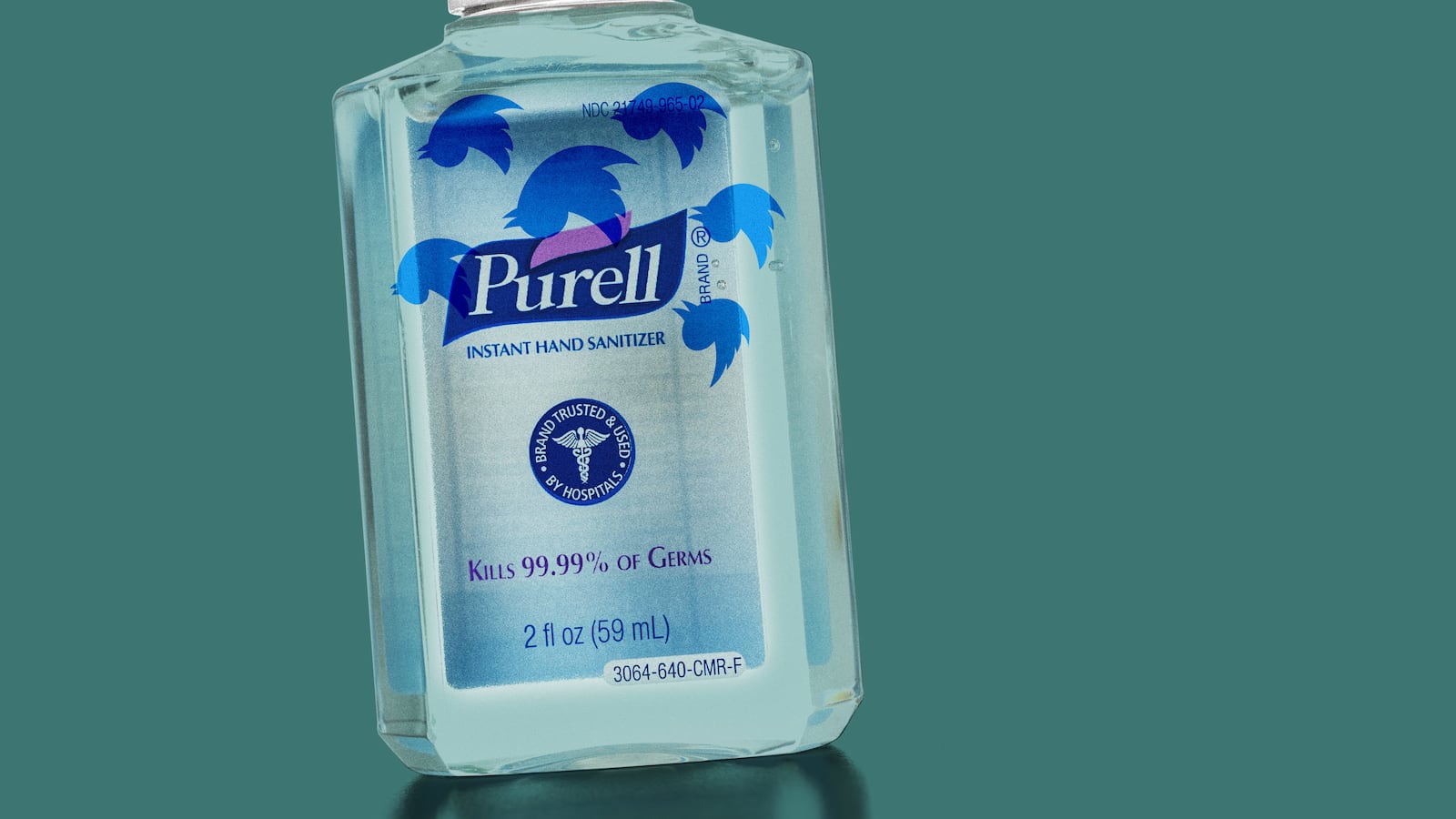Twitter trolls are seizing on coronavirus fears to spread disinformation about the health risks of voting on Super Tuesday in an attempt to help their favorite candidates.
The fake news started spreading early Tuesday morning as voters trickled into the polls and trolls, laughing at the prospect of suppressing turnout among supporters of former Vice President Joe Biden, put on their public service announcement voices and tweeted out phoney public health news related to Tuesday’s primary.
"Reminder: to prevent overcrowding at the polls that could spread coronavirus, if you live in any of the states and want to vote for BERNIE, you need to vote today (3/3). If you want to vote for BIDEN, you voting day is tomorrow (3/4)" one account tweeted early Tuesday,” one account wrote in a now-deleted tweet featuring a map of Super Tuesday states.
After The Daily Beast raised some of the tweets with Twitter, a company spokesperson said the company removed them for violating its election integrity policy, which prohibits misleading information about how to participate in elections.

Accounts from self-identified supporters of Bernie Sanders’ candidacy also joked that Biden voters, who tend to be older and presumably more at risk of serious illness from coronavirus, should stay away from polling places. In tweets now deleted by Twitter, pro-Sanders accounts wrote that "Biden supporters are urged to remain indoors" and "warning that everyone over age 60 that #coronavirus has been reported at ALL polling locations for #SuperTuesday."
The misinformation spanned the political spectrum, with conservative trolls spreading misinformation about the risk of catching the virus in California polling places and Biden voters being at risk. “Biden supporters should stay away from public places during this time of Wuhan sickliness. Like polling places. Please stay home,” Michael Berry, a conservative Texas talk show host tweeted.
So far, the corona-trolling on Super Tuesday appears to be limited in scale. But the disinformation comes at a sensitive time as voters head to the polls in an increasingly competitive primary that’s beset by both uncertainty about the virus itself and what impact it might have on the Democratic convention in July.
Experts say any kind of election-related misinformation is a concern.
“Any type of disinformation around when and how to vote has potentially negative consequences on voter turnout. The best way individuals can support the fight against disinformation and misinformation is to not share it,” said Sophie Lawton, an analyst at Alethea Group, which tracks online disinformation.

Lisa Kaplan, the founder of Alethea Group, said that it’s an issue the campaigns themselves need to tackle. “Voter suppression isn't new, but when it's online it can be harder to separate fact from fiction,” she said. “Social media companies have put policies in place against this type of election interference since 2016. While they can be doing more, campaigns can also be proactive in flagging for removal.”
Many of the tweets pivot off a lame and time-worn joke about the candidates or parties you dislike having to vote the day after polls close. There was plenty of that on display on Super Tuesday from accounts from liberals and and conservatives Sen. Bernie Sanders’ candidacy. And many of those stoking fears about coronavirus among older Biden voters and pushing misinformation about polling dates appeared to be joking as well.
“While some people might find it humorous to suggest that old people stay home, that kind of talk has the potential to actually dissuade people from voting. Even people who are just joking around need to be thoughtful about the messages that they send, especially at a time of great uncertainty as we are right now in connection with the coronavirus,” Richard L. Hasen, an election law scholar at UC Irvine, told The Daily Beast. “I would like to see Twitter and Facebook doing more to amplify messages from official sources of election administration and doing more to remove or otherwise counter disinformation.”
Coronavirus fears are a concern, not just for older voters, but for the older Americans who tend to make up the bulk of volunteers and paid workers who staff polling places on election days. A 2016 study by the Election Assistance Commission found that 56 percent of poll workers for whom the commission had age data were older than 60.

Similar fears among poll workers and election staff have created trouble in Travis County, Texas. County Clerk Dana DeBeauvoir told the Austin American Statesman that approximately 42 election judges and poll workers had not showed up to work on Tuesday. She said that a number of judges, whom she characterized as “older adults,” decided “they did not want to do this and decided the news was scaring them.”
The short staffing created problems for voters including long wait times at polling locations throughout the county.
The office of the Texas Secretary of State also tweeted that it had received “reports of robocalls stating misinformation about today’s primary election” and clarified that “all eligible voters should vote today.”

Ahead of Super Tuesday voting, the Centers for Disease Control released election-specific advice for poll workers in order to help prevent the spread of coronavirus at voting locations. The CDC recommended that poll workers routinely clean and disinfect frequently touched surfaces like voting machines and touchscreens, and for employees and volunteers to frequently wash their hands.
Federal agencies including the departments of State, Justice, and Defense and intelligence community also issued a joint statement warning that “foreign actors” aim to spread false information and propaganda about American elections and candidates in order to “cause confusion and create doubt in our system.”
As of Tuesday evening, though, the only discernible attempts to spread election-related misinformation appeared to come from domestic social media accounts.






